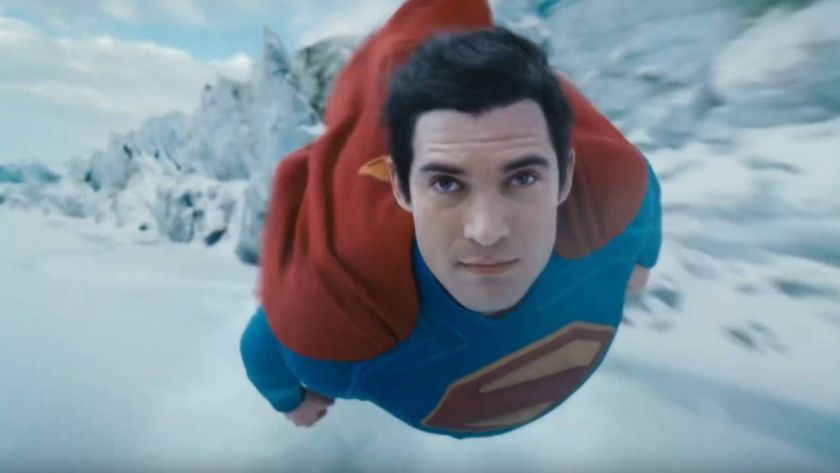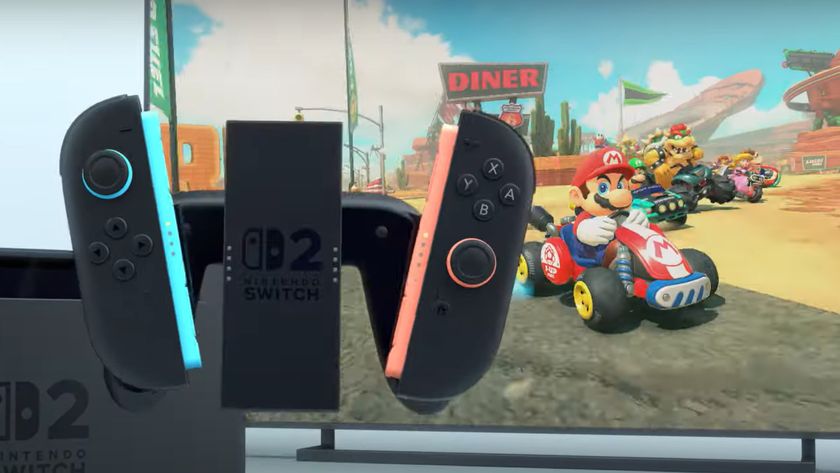50 Greatest Actors Turned Directors
Stars who stepped behind the camera
Mel Gibson
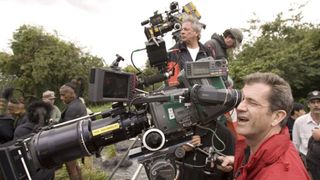
The Actor: American-born, Aussie-raised hellraiser who became an icon twice over for his performances as Mad Max and Martin Riggs and one of the biggest stars of the 1980s and 1990s.
The Director: Gibson made a low-key debut with The Man Without A Face before conquering the box office and the Academy Awards with old-school epic Braveheart .
Acting Vs Directing: Gibson is as tenacious as his screen persona suggests, directing two of the Noughties' least likely hits in The Passion Of The Christ and Apocalypto . However, his (shall we say) unorthodox approach to stardom has largely killed his acting career, despite several attempted comebacks.
Terry Jones and Terry Gilliam
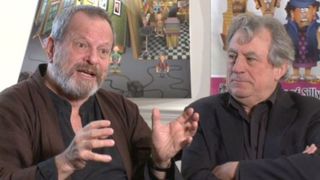
The Actors: One-sixth of Monty Python's Flying Circus . Of the two, Jones had the greater prominence because Gilliam was largely employed as an animator, but the latter cropped up to take the roles the others didn't want.
The Directors: The two Terrys showed the greatest interest in the mechanics of filmmaking, so it made sense they shared the reins on Monty Python And The Holy Grail . After that, Jones specialised as the Pythons' in-house director while Gilliam took his own path (albeit one that brought regular work for his colleagues).
Acting Vs Directing: Gilliam broke free of his past, gaining a reputation as one of cinema's most visionary directors. The more low-key career of Jones, by contrast, means that he remains indelibly linked to Python.
Dennis Hopper
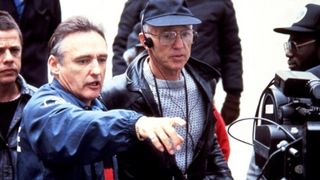
The Actor: Character actor with an impressive C.V. (yes, that's him in Rebel Without A Cause ) but whose truculent reputation and leftfield tastes had prevented him becoming a star.
Sign up for the Total Film Newsletter
Bringing all the latest movie news, features, and reviews to your inbox
The Director: Hopper - along with co-star / co-writer Peter Fonda - went off and did it his way, turning Easy Rider into the calling card of a new generation. But as his notoriously difficult follow-up The Last Movie proved, it's possible to be TOO independent.
Acting Vs Directing: After Easy Rider , Hopper could do what he liked… so he did. None of his directorial efforts captured public attention, but roles in Apocalypse Now , Blue Velvet and True Romance kept his street cred high. Super Mario Bros , less so.
Richard Attenborough

The Actor: His breakthrough role came as vicious gangster Pinkie in Brighton Rock (1947) but Attenborough quickly became a British hero in the likes of The Great Escape and The Flight Of The Phoenix .
The Director: Attenborough had been producing since the 1950s but waited until 1969's Oh! What A Lovely War before directing on screen. His fifth film, Gandhi , proved to be the biggie, bringing an Oscar as Best Director.
Acting Vs Directing: Now aged 90, Attenborough is the much-loved granddad of British cinema and the role model for luvvies everywhere - whether charming audiences on-screen ( Jurassic Park , Miracle On 34th St ) or behind it ( Cry Freedom , Shadowlands ).
Ben Affleck

The Actor: Precocious star cited as 'the next big thing' around the turn of the millennium, who then squandered his goodwill on poor movie choices and the media circus of his relationship with J. Lo.
The Director: What had been forgotten in the backlash was that Affleck's calling card was his and Matt Damon's Oscar-winning screenplay for Good Will Hunting. So really we shouldn't have been surprised when Affleck showed real talent behind the camera. So far, he has a three-for-three strike rate from Gone, Baby Gone , The Town and Argo .
Acting Vs Directing: Clearly, there's a disconnect between his perception as a star and the plaudits he's getting as a director - just like at the reaction to his casting as Batman. But don't write off the actor just yet; the likes of Hollywoodland and State Of Play prove that Gigli was a long time ago.
Bob Fosse

The Actor: Stage dancer Fosse arrived in Hollywood with the expectation of becoming a star, but after small roles in the likes of Kiss Me Kate , premature balding effectively ended his on-screen career.
The Director: Fosse found his niche as a choreographer before making his directorial debut bringing his innovative Broadway show Sweet Charity to the screen.
Acting Vs Directing: Fosse's short-lived acting career has been largely forgotten against his achievements as a director, especially in modernising the Hollywood musical in Cabaret and All That Jazz , before his death at the age of 60.
Robert Redford

The Actor: As A-list as they come, Redford was the golden-haired icon of 1970s cinema thanks to Butch Cassidy And The Sundance Kid , The Sting and All The President's Men .
The Director: Redford's debut, Ordinary People , was an unexpectedly sober, contemplative family drama that earned the novice an Oscar - much to the surprise of Martin Scorsese, whose Raging Bull had seemed a shoo-in.
Acting Vs Directing: Redford is an elder statesman and a badge of somewhat middlebrow class - although of his directorial efforts, Quiz Show shows what he can achieve when he pushes himself. But everything pales into insignificance next to his cheerleading of independent cinema through the Sundance Film Festival.
Charles Laughton

The Actor: When the talkies came, Hollywood needed class. Yorkshire-born Laughton brought it, becoming the first British star to crack the American market in the likes of The Private Life Of Henry VIII .
The Director: Laughton directed just one film, and vowed never to repeat the experience after the critical mauling it received. It took several years before everybody realised that the film in question, The Night Of The Hunter , was a masterpiece.
Acting Vs Directing: Who knows? Laughton's force of personality meant that he found it hard to resist overdoing it as an actor. Yet The Night Of The Hunter is subtle, haunting, ambiguous - it could have been a brilliant career reinvention.
Takeshi Kitano

The Actor: As 'Beat' Takeshi, he was well known in Japan as a comedian, celebrity and the brains behind Takeshi's Castle . Yet his supporting role in Merry Christmas, Mr Lawrence hinted at richer, deeper things.
The Director: Takeshi was an accidental director, taking over the reins of star vehicle Violent Cop after the original helmer fell ill. But he found a distinctive voice - deadpan, surreal, and freely mixing violence with comedy - and never looked back.
Acting Vs Directing: During the decade from 1993's Sonatine to 2003's Zatoichi , Kitano was one of the world's best directors but has struggled to recapture that form. Ironically, he's probably still better known as an actor, not only in his own films but also for his startling performance in Battle Royale .
Laurence Olivier
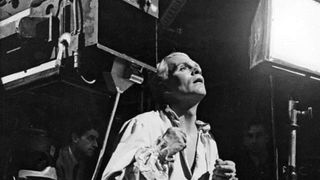
The Actor: The king of British theatre throughout the 1930s and also a film regular when Hollywood lured him to the States to become a global star in Wuthering Heights and Rebecca .
The Director: Olivier stuck to what he knew, revolutionising on-screen Shakespeare by framing Henry V as war propaganda and recasting Hamlet as a film noir.
Acting Vs Directing: With only five directorial credits (and all but two based on the Bard), Olivier never really challenged himself in the same way he did as an actor.

